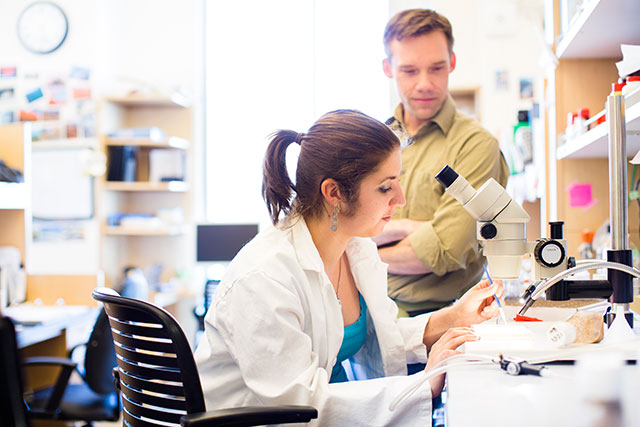

 Skip to navigation
Skip to navigation
Site Primary Navigation:
- About SDSC
- Services
- Support
- Research & Development
- Education & Training
- News & Events
Search The Site:

Published May 28, 2015

The San Diego Supercomputer Center (SDSC) at the University of California, San Diego, in collaboration with the UC San Diego School of Medicine, has launched a new mentoring program designed to provide a pathway for high school student researchers to gain access to experts in their field of interest.
The Mentor Assistance Program (MAP), scheduled to run from October 2015 to May 2016, is focused on creating mentoring relationships that will enhance students’ desire to learn, teach, and conduct research in a variety of humanities fields as well as areas of science, technology, engineering, and mathematics (STEM).
On the mentoring side, MAP is open to all full-time academic and administrative faculty and postdoctoral fellows. Faculty in all of UC San Diego’s colleges and departments, including but not limited to Biological Sciences, Computer Science, Electrical Engineering, Arts and Humanities, International Relations, Health Sciences, and Visual and Performing Arts, are eligible to serve as mentors.
“The MAP program came out of a series of discussions about how we could provide a good degree of flexibility to faculty and post docs, who typically have very busy schedules, while providing a rewarding experience to the diverse high school student population across San Diego county,” said Ange Mason, SDSC’s education program manager, who co-founded the initiative with Kellie Church, an assistant professor in the Department of Reproductive Medicine within UC San Diego’s School of Medicine.
“We have designed this program so that UC San Diego faculty and postdoc mentors can decide their own level of involvement with the students, from mentoring over email and phone regarding students’ science fair or independent study projects, to mentoring involving laboratory and worksite visits,” added Mason. “After six months, the mentor may offer the student a summer internship if he or she desires.”
While mentors will participate on a volunteer basis, Mason and Church said the MAP program provides an opportunity for faculty and postdocs to fulfill the outreach, education, and diversity component that is required by many funding agencies.
“We think this is an excellent way to help fulfill that requirement,” said Church. “This program is open to any UC San Diego department, and we’re eager to have a high level of involvement that spans the entire campus.”
More information can be found on the MAP webpage, along with some key dates. The deadline for MAP mentor applications is July 1. High school students (grades 10-12) can apply to the program from September 1 to September 21, 2015.
About SDSC
As an Organized Research Unit of UC San Diego, SDSC is considered a leader in data-intensive computing and cyberinfrastructure, providing resources, services, and expertise to the national research community, including industry and academia. Cyberinfrastructure refers to an accessible, integrated network of computer-based resources and expertise, focused on accelerating scientific inquiry and discovery. SDSC supports hundreds of multidisciplinary programs spanning a wide variety of domains, from earth sciences and biology to astrophysics, bioinformatics, and health IT. SDSC’s Comet joins the Center’s data-intensive Gordon cluster, and are both part of the National Science Foundation’s XSEDE (eXtreme Science and Engineering Discovery Environment) program, the most advanced collection of integrated digital resources and services in the world.
Share